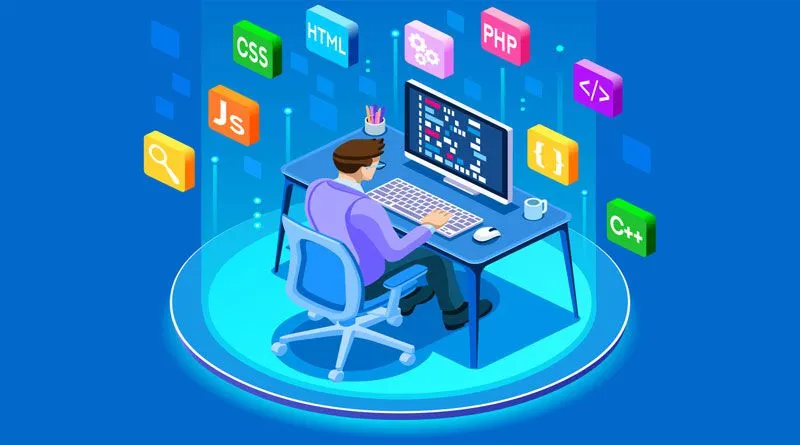-
Ροή Δημοσιεύσεων
- ΑΝΑΚΆΛΥΨΕ
-
Blogs
Web Portals That Power Pune’s Startup Accelerators

Pune has long been recognized as a center of academic excellence and IT innovation. In recent years, however, it has also emerged as a dynamic hub for startups. Fueled by a vibrant ecosystem of incubators, co-working spaces, and venture capital networks, Pune’s startup accelerators have been crucial in nurturing innovation and entrepreneurship. At the core of these accelerators lies a key enabler—web portals that simplify operations, manage resources, and drive collaboration.
These portals are more than just websites; they are full-fledged platforms designed to support early-stage companies through mentorship, funding access, workshops, and networking. To build and maintain such multifaceted systems, accelerators rely on powerful, scalable web applications, a task that falls squarely into the domain of full stack development.
The Digital Backbone of Startup Accelerators
Startup accelerators typically manage a wide range of activities, including application management, event scheduling, mentor matching, progress tracking, and performance analytics. Handling all this manually is not only time-consuming but also prone to inefficiencies. This is where custom web portals make a difference.
A well-structured portal streamlines the application process for startups, enabling quick screening and shortlisting by investors and mentors. It can also serve as a dashboard for progress updates, document submissions, and communication between stakeholders. These platforms ensure transparency, consistency, and ease of access across the accelerator’s lifecycle.
Developing such a portal requires more than just a few static pages. It involves designing dynamic frontends, building secure backends, integrating APIs, and deploying applications that can handle high traffic and data. This is precisely where full stack developers step in, bridging the gap between user experience and robust server-side logic.
Full Stack Developers: The Architects Behind the Interface
Creating a platform that supports the varied needs of a startup accelerator means building across the technology stack—from user-friendly dashboards to secure database systems and scalable cloud hosting. Full stack developers are uniquely positioned to handle this end-to-end development.
Their responsibilities may include developing interactive frontend features using frameworks like React or Vue, building APIs with Express.js or Django, and maintaining secure data flows using databases like PostgreSQL or MongoDB. They also ensure responsiveness across devices and optimize performance for real-time updates.
The ability to handle such diverse tasks makes full stack development a valuable skill in Pune’s startup ecosystem. With accelerators expanding their digital infrastructure, there’s rising demand for professionals who can build and maintain these multifunctional web platforms. That’s where formal training becomes crucial. Enrolling in a full stack developer course in Pune equips learners with hands-on experience and practical insights needed for these real-world applications.
These courses often simulate real business scenarios, allowing students to create project management tools, booking engines, or event coordination apps—mirroring the systems used by actual accelerators. This experience not only makes them job-ready but also enables them to contribute meaningfully to the startup environment.
Pune’s Accelerators and the Tech Driving Them
Several accelerators in Pune, such as Venture Center, Bhau Institute, and TiE Pune, have embraced digital tools to enhance their service delivery. These institutions offer startups structured support through online portals that handle everything from application intake to mentor interactions and performance reviews.
These web applications are designed for scalability and security, especially since they store sensitive startup data and financial records. Full stack developers contribute significantly to these goals by integrating encryption protocols, ensuring compliance with data regulations, and automating workflow processes.
Moreover, many accelerators now run hybrid models—part online, part offline—which makes digital infrastructure even more critical. Web portals with video conferencing capabilities, progress tracking tools, and virtual demo day features are becoming the norm. Developers who understand both user interaction and backend architecture are essential to creating and maintaining such features effectively.
Completing a full stack developer course provides a competitive edge to tech enthusiasts looking to enter this high-demand space. These programs emphasize real-time application development, deployment on cloud platforms like AWS or Azure, and version control—all essential skills for building web portals that support startup growth.
Conclusion
As Pune’s startup ecosystem continues to evolve, the technology powering its accelerators must keep pace. Web portals are no longer optional—they are central to managing operations, enhancing user experience, and driving performance. Full stack developers, with their ability to manage both client-side and server-side development, are playing a vital role in building these powerful digital systems.
For those aiming to contribute to this ecosystem, pursuing a full stack developer course in Pune can be a wise move. Learners can become the architects behind the platforms that enable startups to thrive.
In a city where innovation meets opportunity, mastering full stack development offers a direct path to influencing the future of entrepreneurship.





